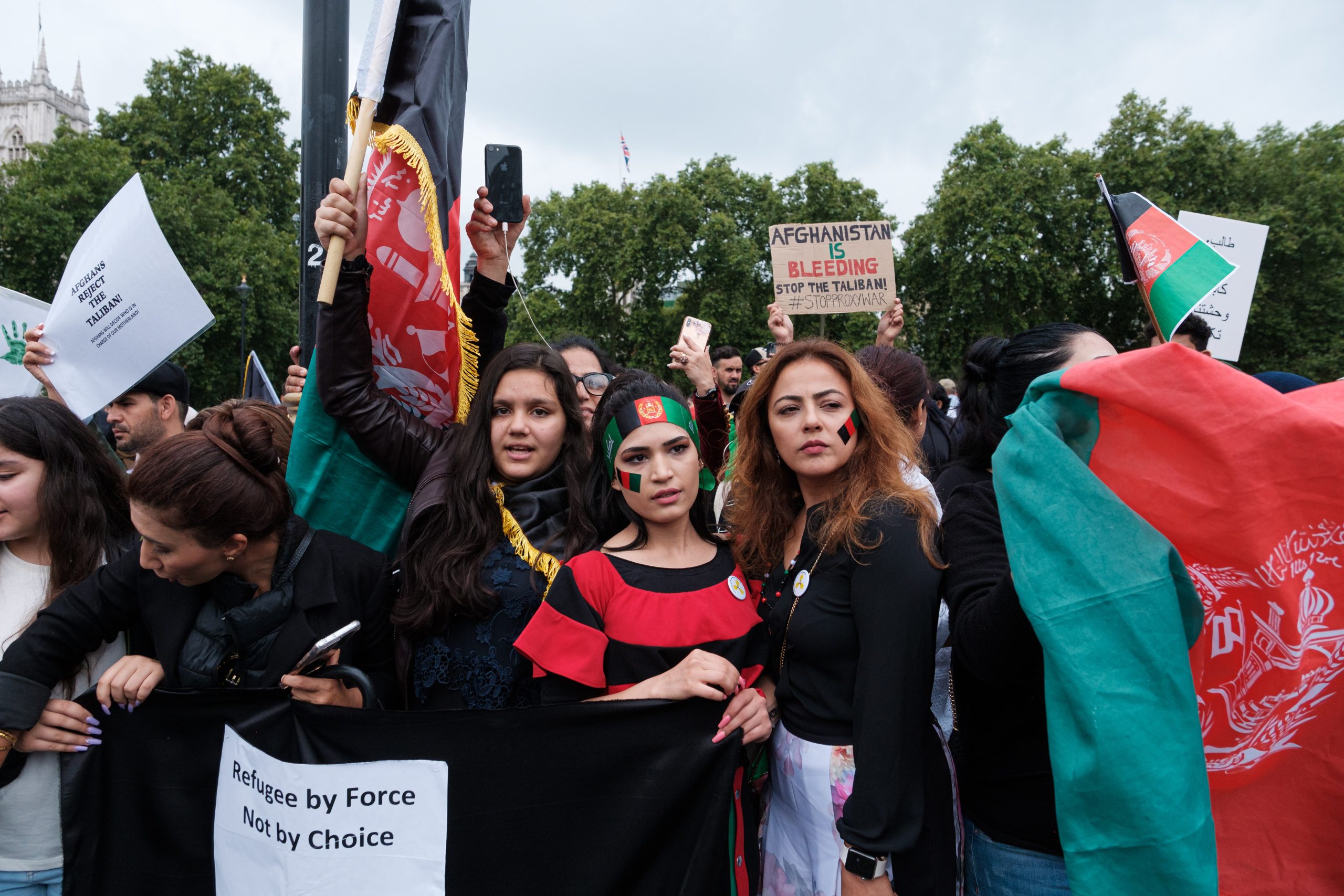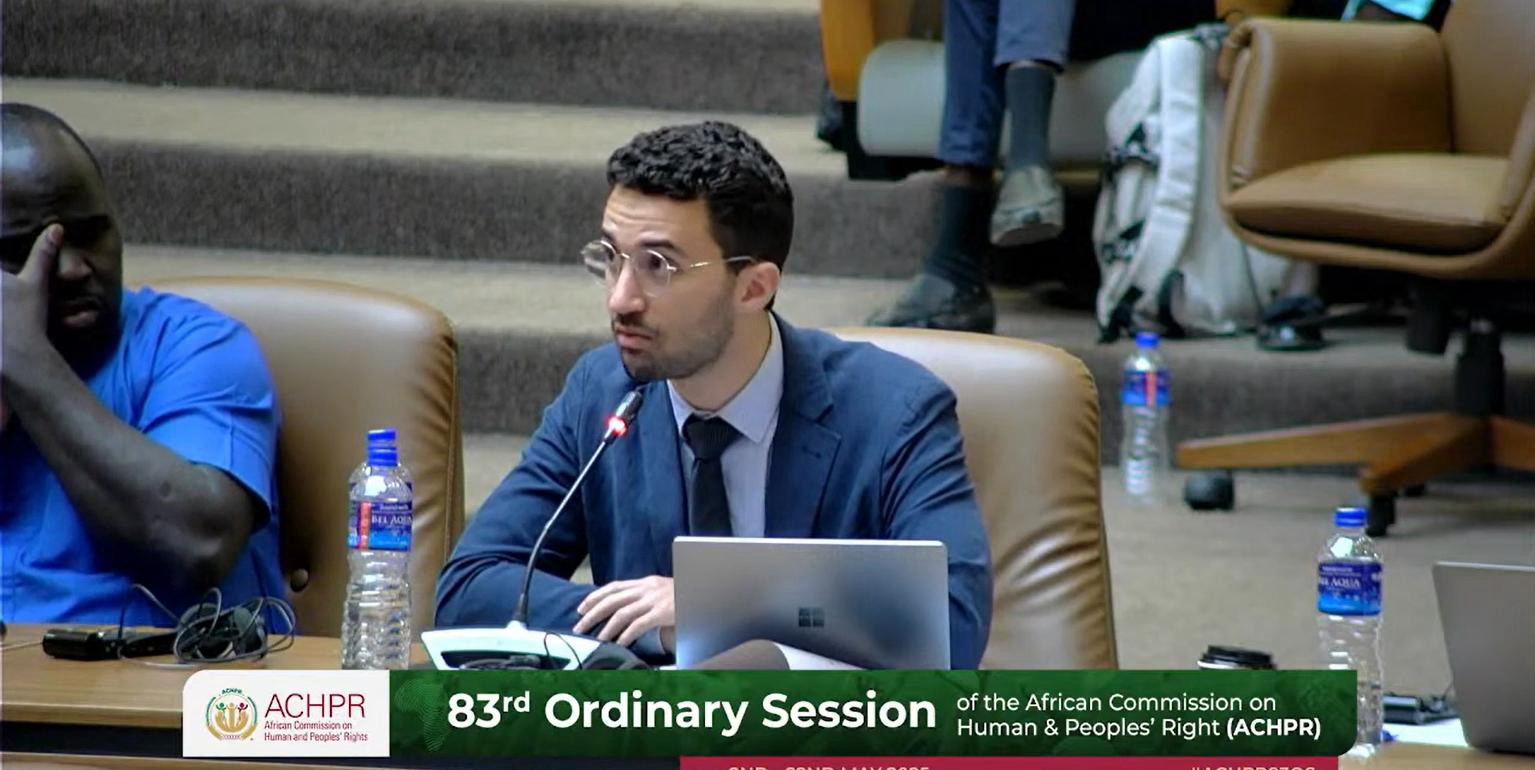
Egypt: Reform unjust vice laws, guarantee open civic space
During Egypt's UPR adoption at HRC59, Nora Noralla delivered a joint statement on behalf of ISHR, Cairo 52 and Middle East Democracy Center. Watch and read the full statement below.
Photo by Ehimetalor Akhere Unuabona on Unsplash

Next week, the Human Rights Council will seek to adopt a resolution on the human rights situation in Afghanistan. The context in which this takes place is of deep financial, humanitarian and human rights crises in the country, but also of political negligence by the international community.
In the same week, the UN’s Sixth Committee (Legal) will deliberate on the draft Crimes Against Humanity treaty, the first major global treaty on international crimes since the 1998 Rome Statute of the International Criminal Court. ISHR joins the call by many Afghan woman human rights defenders to expand the crime of apartheid to also consider gender apartheid as the most adequate reflection of the situation of segregation that women and girls in Afghanistan face today.
Accountability
The UN Assistance Mission in Afghanistan (UNAMA) have reported at least 218 extrajudicial killings, 14 instances of enforced disappearances, 424 arbitrary arrests and 144 instances of torture and ill treatment of former government and military personnel since the Taliban took over in August 2021. These do not account for the many additional cases of civil society actors, whose reports remain unverified due to the increasingly challenging task of human rights monitoring and documentation. These gross and systematic human rights violations persist with impunity.
The Special Rapporteur on the human rights situation in Afghanistan, Richard Bennett, further reported the particularly precarious conditions faced by Tajik, Hazara, Turkmen, Uzbek and other ethnic and religious communities. During his oral update to the Human Rights Council, he expressed concern about ‘the effect this strong sense of discrimination and exclusion held by large parts of the population may have on the stability of Afghanistan’.
Human rights defenders and NGOs have time and again highlighted the urgent need for an accountability mechanism that includes in its mandate the collection and preservation of evidence of gross and systematic human rights violations that may amount to crimes against humanity. This would complement the mandate of the Special Rapporteur, whose work to monitor, document and report on the ground situation with the international community remains crucial.
‘The draft resolution fails to establish an accountability mechanism for Afghanistan, despite compelling evidence for its need. This risks the entrenchment of impunity for crimes against humanity,’ said Pooja Patel, programme director at ISHR. ‘The Afghan human rights community is experiencing a crisis of trust with the UN. The failure to hear their voices is also a risk to the credibility and legitimacy of a body that should be centering rights holders and survivors’.
Gender apartheid
Since the Taliban takeover of Afghanistan in August 2021, the Taliban has issued close to 100 decrees with the aim to erase women from public life, denying women’s and girls’ rights to health, education, employment, freedom of expression, peaceful assembly, association and movement. Women and girls from specific ethnic and religious communities face multiple and intersecting forms of oppression.
ISHR signed on the End Gender Apartheid Campaign, stressing that the Taliban in Afghanistan are practicing systematic and pervasive discrimination, segregation and dehumanisation of women and girls that amount to gender apartheid.
While ‘gender apartheid’ is not yet codified in international law, ISHR has joined calls by many, including our Board member Shaharzad Akbar, Justice Navinathan Pillay, Nobel laureate Shirin Ebadi, Hilary Rodham Clinton among others, for States to address this gap. The End Gender Apartheid Campaign has presented a legal brief to States at the UN Sixth Committee (Legal) to support inclusion in the draft Crimes Against Humanity Treaty of the crime of gender apartheid.
‘We welcome that the draft resolution being considered at the Human Rights Council seeks to mandate a report focusing on the systematic and structural discrimination, segregation and dehumanisation of women and girls in Afghanistan,’ said Pooja Patel. ‘We consider that the articulation of this from a human rights perspective will strengthen the understanding of this atrocity crime,’ she concluded.
Centering women human rights defenders
As women human rights defenders and their movements currently operate in exile or under increasingly challenging realities inside the country, it remains crucially important for the Human Rights Council to ensure formal and informal platforms for engagement and dialogue on the situation in Afghanistan, and to seek their guidance for solutions.
In this regard, ISHR welcomes the continuation of an interactive dialogue in June 2024 focused on the situation of women and girls in Afghanistan.

During Egypt's UPR adoption at HRC59, Nora Noralla delivered a joint statement on behalf of ISHR, Cairo 52 and Middle East Democracy Center. Watch and read the full statement below.

The 59th session of the UN Human Rights Council (16 June to 9 July 2025) will consider issues including civil society space, climate change, sexual orientation and gender identity, violence and discrimination against women and girls, poverty, peaceful assembly and association, and freedom of expression, among others. It will also present an opportunity to address grave human rights situations including in Afghanistan, Belarus, China, Eritrea, Israel and oPt, Sudan, Syria and Venezuela, among many others. Here’s an overview of some of the key issues on the agenda.

On 8 May 2025, during the 83rd ordinary session of the African Commission on Human and Peoples’ Rights (ACHPR), ISHR delivered a statement under Item 5, which focused on the activity report of the Special Rapporteur on Human Rights Defenders. The statement reaffirmed ISHR’s strong commitment to the protection and empowerment of defenders across Africa.